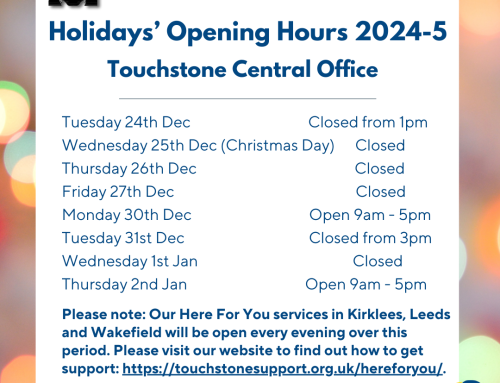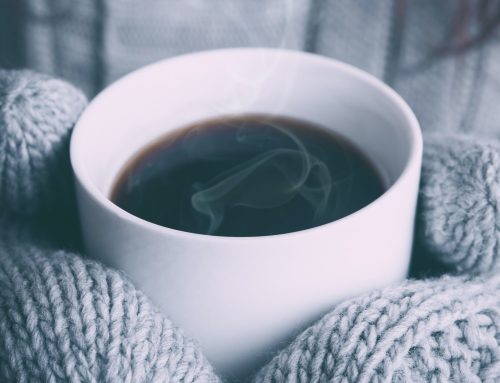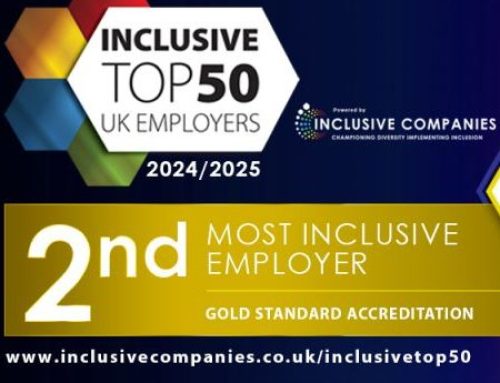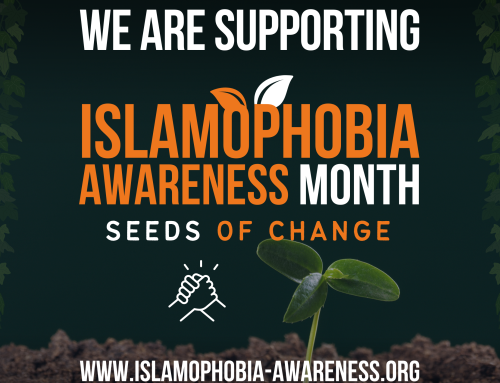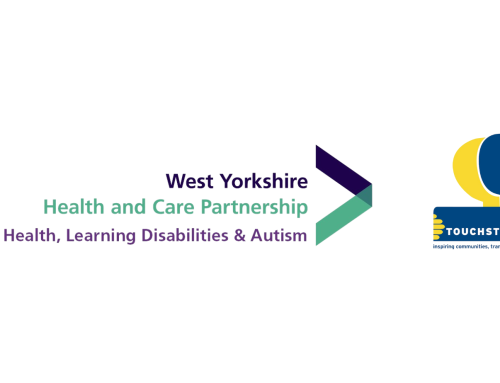This 16 Days of Action, a staff member at Touchstone has written something of their lived experience of domestic abuse. We know some readers will have experiences of domestic abuse that have left deep scars – please read with care.
The Past
As an adult, I found it really difficult to understand the nature of a healthy relationship. I had experienced two separate instances of bullying, one as a young child and one at 16, which both impacted me badly and meant I was very focused on not upsetting people, keeping people happy and being compliant to fit in.
My first girlfriend/boyfriend relationship had a lot of emotional and some physical aspects of abuse, constant insults and putdowns, name calling and body shaming. I remember that I would get very upset, and my partner would apologise and then it would start again. At the time I had no idea this was even abuse. My partner would always say he didn’t mean it. It didn’t fit the classic image of what I thought was abuse in my mind.
Eventually when I ended the relationship he became devastated, begging, pleading, turning up at my home in the middle of the night. My interpretation of this was just that he was heartbroken. I remember being horrified at the way he spoke to his Mum, never understanding I was getting the same treatment.
Relationships like this when you are young can really set a low bar in terms of boundaries. I felt my job was to help and support people, to fix things and to understand. My own needs were very low down in a list of priorities. Despite a then healthy relationship, I was unable to manage being treated well. My self esteem issues were exhausting for me and my partner and eventually the relationship ended.
My relationship history continued then to be a series of negative experiences. Predominantly involving emotional abuse and some physical. I wasn’t familiar with the term “gaslighting” until my thirties. It was then I realized a partner, who had been having several affairs and telling me that I was losing my mind when I challenged him about this, didn’t have a point – at all.
With gaslighting, one part that isn’t spoken about enough is the apology part. Once you have been successfully convinced that what you believe and feel is wrong, and that your actions are wrong, not your abusers, you feel a guilt and a need to apologise. I remember with one partner I would apologise and apologise. He would refuse to accept the apology, repeating what I had done wrong over and over again, goading. Eventually I would become emotional and sometimes raise my voice in frustration and he would clap, slowly, and say “well done”. I still remember how twisted up inside I would feel when he did this.
The Value of Peer Support for moving on
Luckily for me there was a turning point.
I met good friends who had experienced both emotional and physical abuse and were on a journey of recovery. We had all by this point made some sense of our past experiences, mainly through social media, our job roles, and counselling, where we started to recognize the patterns. I don’t believe we choose abusive partners. You could argue abusive partners sometimes prey on vulnerabilities, but equally I have seen lots of people who seemed very outwardly confident and assertive, with more solid boundaries than me, broken down and affected by this issue.
For me, the skill I needed was in recognising when it was happening and seeing the danger signs before falling in love. I was often told you see the good in people, you need to toughen up and be less understanding. I was asked “what are you doing that attracts these men?”. I have never wanted to change any of those qualities about myself, just because some people are abusive. I have never agreed with blaming people for the behaviour of the abuser or with narratives about it being your fault because of who ‘you attract’.
What I did need was peer support. That’s where my friends came in.
We worked on our boundaries. We wrote lists of things that were ok to compromise on and things that were not. We took part in activities that built us up and sometimes destructive ones that didn’t. We discussed “red flags” and what is and isn’t acceptable. We challenged each other to end unhealthy ‘situationships’.
I also joined a social media group that gave me some dating rules to follow and a community of women aiming for healthy relationships. I wouldn’t actually recommend this group to others as I have since found a lot of fault with it, but I found the basics there. We challenged the belief that you have to be on your own to heal at times, and at other times, we worked on being single.
I think having healthy enough relationships is a journey that is life long. I don’t see us moving from struggles to healing in a linear way. I just think some things are helpful and some things are not helpful, and I feel happy that I can see the warning signs more easily these days. The past doesn’t come up for me quite as much anymore.

